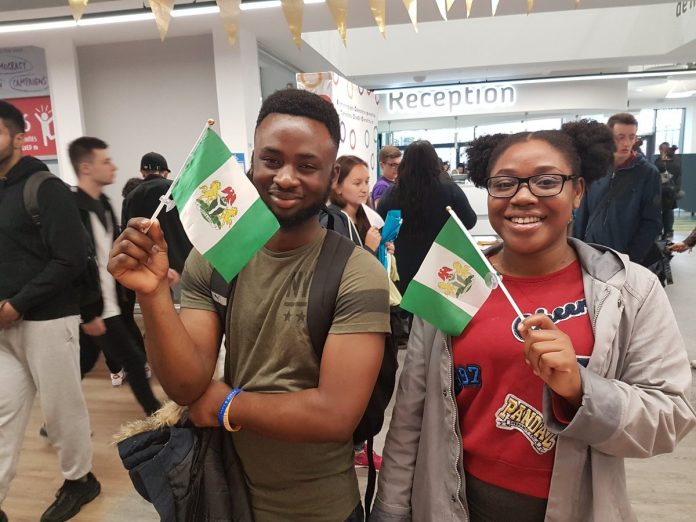The Global Commission on Modern Slavery and Human Trafficking, led by former British Prime Minister Theresa May, is set to reduce the number of persons trapped in modern slavery globally, with the launch of an international campaign to end the menace.
In a statement released yesterday, seen by BusinessDay, the commission stated that at least 1.6 million Nigerians are currently entrapped by the menace, while globally, over 50 million persons are still being held.
“This is the misery that the Global Commission on Modern Slavery and Human Trafficking wants to bring to an end. It has launched a bold international campaign to save millions from modern slavery and human trafficking,” the statement read.
“An estimated 50 million people – almost the population of Kenya – are trapped in slavery, according to the landmark report by the Global Commission on Modern Slavery and Human Trafficking launched at the United Nations in New York, at 8 AM Lagos time on April 8.
“The 2023 Global Slavery Index ranks Nigeria 5th out of 51 African nations for modern slavery prevalence, with an estimated 1.6 million people affected,” it said in the statement.
However, the commission acknowledged that Nigeria has also led the region in its response, implementing the strongest anti-slavery measures in Africa, including a new National Action Plan (NAP).
Describing it as the greatest human rights issue of our time, Chair of the commission, former British Prime Minister May, noted that modern slavery constitutes a moral stain on humanity as a whole.
“Modern slavery and human trafficking remain the greatest human rights issue of our time. Yet, in recent years, it has dropped down the international agenda. While the world faces many challenges, this is a moral stain on humanity that we can – and must – address with far greater urgency and global collective action,” said May.
“Every one of those 50 million victims has talents, interests, hopes, and desires that have been stripped from them. They deserve to live their lives, just like anyone else, and if we are to give them back their freedom and end this vile trade, we need to act now,” she added.
The report sets out how government, business and civil society can fix the systematic failures which allow the exploitation of millions of lives. It is an international call to action in pursuit of the United Nations’ goal of eliminating modern slavery and human trafficking by 2030.
The report encouraged the international community to view modern slavery alongside climate change, geopolitical volatility and armed conflict.
President of the 79th Session of the UN General Assembly, Mr. Philemon Yang, in his remarks, said: “We must take a stronger stand against modern slavery and human trafficking.
“The launch of the Global Commission’s report today will contribute to the dialogue and deliberations around this critical issue. Together, we must forge the diverse partnerships that are critical to our success. By uniting to drive transformative change, we can confront the challenges that enable exploitation to flourish.”
The Global Commission said it believes a world without modern slavery is a realistic and achievable goal, but only if countries tackle forced labour in global supply chains, urge governments to meet their international commitments, implement effective legislation tackling modern slavery, and engage with civil society organisations to prioritise the issue in crisis contexts.
The report also urged governments in Member States to prioritise effective and enforceable domestic legislation to provide a unified definition of modern slavery and called on businesses to increase accountability over their supply chains to identify, prevent, and address risks of forced labour.
It recalled the case of Nasreen Sheikh, who survived modern slavery in a sweatshop in Kathmandu where she spent up to 15 hours a day standing at a textile machine at the age of 10. She later escaped and became an anti-modern slavery activist, social entrepreneur, and author.
“I know first-hand the impact of this devastating crime on people’s lives – stripping them of their humanity and destroying their livelihoods. The scale of suffering caused by contemporary forms of slavery is reminiscent of the genocides of the last century. The world cannot stand by and watch while millions endure such abuses,” Sheikh said.
According to Sheikh, faceless casualties are generated every day through the purchasing decisions of unconscious consumption and the blind eyes of the global economic system.






